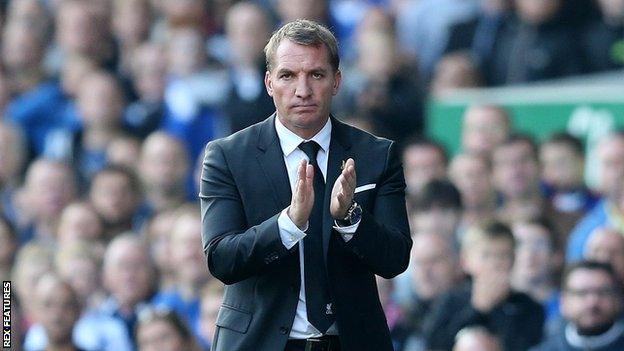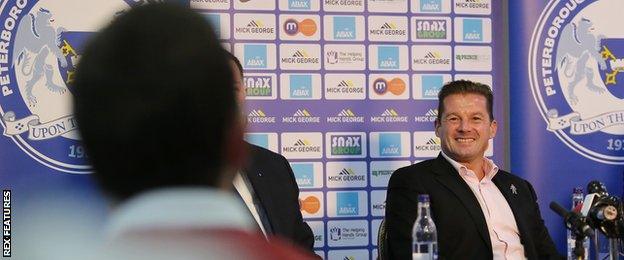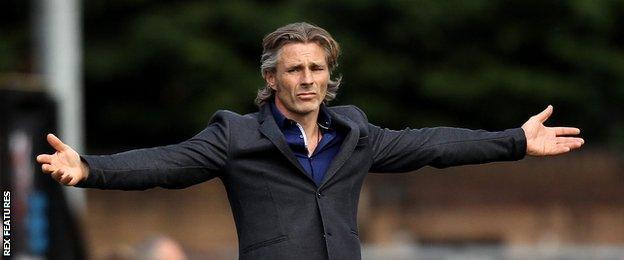Matt Bloomfield: 'Best coaches might not get results'
- Published

Brendan Rodgers was sacked following his side's 1-1 draw with Everton on Sunday
The managerial merry-go-round race is at full tilt after Brendan Rodgers' sacking by Liverpool, Dick Advocaat's resignation from Sunderland and Fleetwood getting rid of Graham Alexander.
It's blatantly obvious to say so, but winning matches is the only way for a manager to stay in their job. How they do that, though, is down to an individual's philosophy and beliefs.
There are many ways to win football matches, and winning to most of us is the be all and end all. But style is more important to some than others.
Style does not always win games
Brendan Rodgers is widely regarded as one of the brightest coaches in the English game.
His philosophy of pure, total football is what he believes in and one of the reasons why Liverpool received so many plaudits during the season when they finished second in the Premier League.
He is the blueprint for all young aspiring coaches in this country. However, his recent sacking shows that even the best coaches might not always achieve the results that their work deserves.
During their recent recruitment process for a new manager Peterborough chairman Darragh MacAnthony was vocal on his opinions about how style was extremely important to him and the club's fans.
New manager Graham Westley will have taken the job knowing full well that winning games was vital, but so was the way in which they won those games.

Westley promised Peterborough fans they would see as many as 600 passes per game
Most football fans would agree that Sam Allardyce did a fantastic job at West Ham. He got the team promoted from the Championship and made them an established team in the Premier League.
However, he didn't ever seem to be fully accepted by the West Ham fans as his style of football wasn't necessarily to their liking and was replaced by Slaven Bilic this summer.
No magic managers' wand
Lower down the levels it might be more of a case of getting enough results to buy yourself time to implement your own philosophy.
Unless a successful manager moves up the ladder to a new club, usually an incoming manager inherits a team and a squad that has been used to losing.
To change a mentality within the squad is not as simple as clicking your fingers and working magic and most managers will want to bring in their own players.
However, at clubs lower down the scale players will not walk away from their contracts and clubs will not be able to afford to pay players out of those contracts and bring in new players.
Therefore, managers might be stuck with players they might not necessarily want but they might need to utilise to get enough points to buy the time to gradually change the squad around.
The first job that a manager takes is vital. The stability of the club, the relationship with both the club's board and the club's fans and the finances of a club are extremely important for any manager - let alone an inexperienced manager. Few are lucky enough to be picky so most have play the cards they are dealt.

Gareth Ainsworth was named as Gary Whaddock's replacement at Wycombe in November 2012
Our manager at Wycombe Gareth Ainsworth is currently ninth in the list of longest-serving managers after only just over three years in the job.
The team ethos has evolved over those three years until he now feels like he has been able to really stamp his own style and beliefs on every member of the squad. To buck the trend and survive for such a long period in his first appointment shows what a brilliant job he is doing.
It's a fascinating vocation and one that can deliver extreme highs and lows. It seems that once it gets you it's hard to put it down.
- Published7 October 2015

- Attribution
- Published6 October 2015

- Published7 October 2015

- Published7 June 2019
